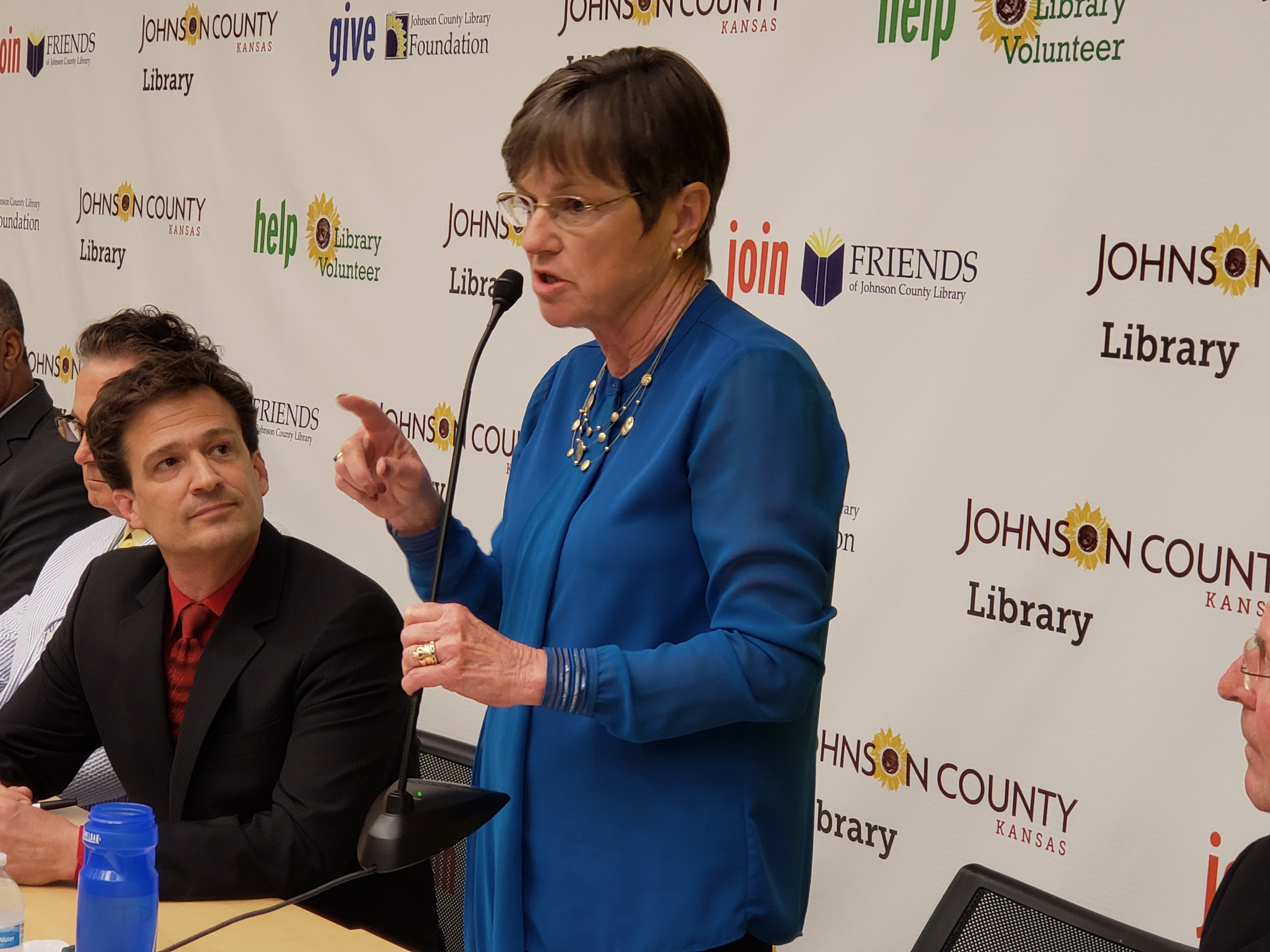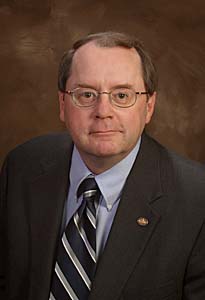Maybe some other time, an ally of independent gubernatorial candidate Greg Orman could have mocked state Sen. Laura Kelly’s career path and voters would have merely rolled their eyes.
But as women surge politically with the #MeToo movement, the Women’s March and the election of President Donald Trump, experts say this is a perilous era for treating female candidates flippantly.

Wichita attorney Scott Poor’s series of Facebook remarks ridiculing Kelly’s work history is just one of many instances of female candidates being treated differently from their male counterparts, a trend that has already led to political blowback.
“This is exemplary of a challenge that many women candidates face still to this day,” said Kelly Dittmar, a political scientist at Rutgers University-Camden and a scholar at the Center for American Women and Politics.
Female candidates, Dittmar said, “are still being asked to prove their qualifications for office to a degree and in ways that are not equivalent to what men are required to prove.”
Poor, one of three directors for Orman for Kansas, derided the Democratic candidate for governor on her campaign’s Facebook page, taking particular aim at her work as a recreational therapist, a job in which she worked with children with mental illness.
“Have you ever had a real job?” he asked.
“KS has 40,000 employees and $15b dollar budget. How many ‘recreational therapists’ have ever managed such an enterprise?” Poor asked.
Poor has not returned calls seeking comment. The Orman campaign didn’t respond to emailed questions for this story.
The Orman campaign previously has said it disagreed with the comments — almost a week after the Wichita Eagle first reported the posts and the same day a website was launched to get voters to rescind their signatures on a petition to get Orman on the ballot as an independent candidate.

Kelly is not giving interviews about the Facebook posts, but supporters such as Emily’s List and Senate Minority Leader Anthony Hensley have rebuked Poor as well as the Orman campaign.
What Kelly and her campaign faced is no different from what other women running for office must confront, whether it’s questions about what they wear, questions about raising children or questions about their credentials for public office. Sometimes, it’s just belittling women in general.
While there’s no way to know just how often these issues arise for female candidates, consider some of these examples, locally and nationally:
- Last month in Shreveport, La., a city councilman said it was time to stop electing housewives, a comment directed at a female Republican candidate.
- Last year in Overland Park, a female City Council candidate said she felt bullied by an older, longtime incumbent who sent her nine text messages and phoned her several times to talk her out of running. The councilman said he was only expressing sincere concerns about her lack of experience. He narrowly lost the race.
- Six years ago, a Republican rival sent out postcards noting that Kansas state Rep. Melissa Rooker didn’t have a job. She had left the film industry to take care of her family. She overwhelmingly won the three-way race.
- Last year in Atlantic City, N.J., a countywide elected officer was knocked out of office after sharing a meme about the Women’s March that said, “Will the women’s protest end in time for them to cook dinner?”
Many of these instances come at a time when women are running for office in record numbers. Sixty-two women are running for governor this year, beating the previous benchmark of 34 set in 1994. Nine have won primaries this year, closing in on the previous record of 10.
Of all the issues women face on the campaign trail, having to prove their qualifications is one of the biggest to overcome, according to a research memo from the Barbara Lee Family Foundation, which seeks to get women elected.
Research shows “women face a litmus test that men do not have to pass,” said the foundation’s 2016 memo. “Women have to prove they are qualified. For men, their qualification is assumed. Women face the double bind of needing to show competence and likeability.”
But raising the issue to a public level where a woman is mocked for her career choices carries with it certain political risks in 2018, experts said.
“It’s really a culture shift,” said Allison Abney, spokeswoman for Emerge America, an organization that recruits and trains Democratic women running for office.
“You’re seeing since the 2016 election a real surge and a real shift in the way the public and people are responding to instances of sexual harassment, sexism and things that are happening to women,” Abney said.
While there is no playbook for dealing with these kinds of issues, some experts say female candidates want to call it out quickly but also use long-form storytelling to address the larger issue of women’s role in society.
The Kelly campaign issued a comment when the story first broke — a spokeswoman called the comments “derogatory” and “condescending” — but has since pivoted to the issues she wants to discuss.
She posted a video on Twitter that touched on the issue, but not directly. She promised to be a strong voice for women.
Whether they are mothers, caretakers, self-employed, CEOs, or anything in between, women's roles in the workplace and in society have been diminished far too long. I promise to be a strong voice for all Kansas women and make sure they get the respect they deserve. #ksleg #ksgov pic.twitter.com/UrtCvIfxG1
— Laura Kelly (@SenatorKelly) July 17, 2018
Asked about Kelly’s video posting, one expert who trains female candidates called it a smart response.
“She’s owning back the qualification piece,” said Erin Vilardi, founder and CEO of VoteRunLead, which trains women candidates running for office.
Through the video, Kelly is saying, “ ‘I’m going to compete with you and I’m going to win, and this is going to be an advantage for me,’ ” Vilardi said.
While Orman did not post the comments on Kelly’s Facebook page, some believe that he should take a strong stand and end his relationship with Poor.
Democratic secretary of state candidate Brian McClendon had employed Poor early in the campaign but announced last week he would not hire the attorney for any services in the future.
Hensley said Orman should end his relationship with Poor, regardless of how limited a role he has with the campaign. A spokesman told the Topeka Capital-Journal that Poor incorporated Orman’s Kansas committee and he provides “continuing legal advice” to the campaign.

“Orman should disassociate himself from Scott Poor,” Hensley said in an interview. “He should just issue a public statement saying that ‘Scott Poor has nothing to do with my campaign.’ ”
Added Vilardi, “You keep people around you that make mistakes, you are the company you keep.”
This is a precarious time for male candidates who are looking for confidence in the political market when making decisions about dealing with sexism, Vilardi said.
“Male candidates don’t have that right now,” she said. “It’s on the side of the insurgent women … and this is for Democrats and Republicans who have been around a long time.
“They are operating from a place of fear rather than a place of value.”
















